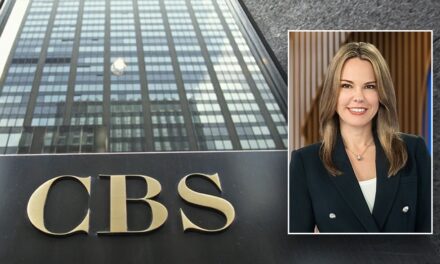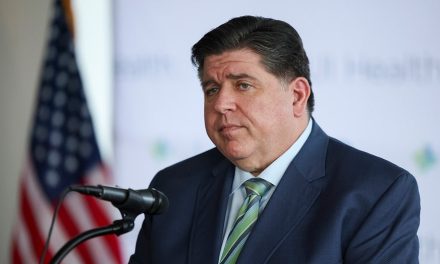In a significant development for the media giant Paramount, internal and external pressures are mounting as the company navigates the complexities of a potential settlement in the ongoing lawsuit involving former President Donald Trump. The situation has escalated particularly among CBS stars and Democratic lawmakers who are vocalizing their concerns regarding the implications of a settlement.
As the legal landscape surrounding Trump’s various lawsuits continues to evolve, Paramount finds itself at the crossroads of public sentiment and corporate responsibility. The current environment signals heightened scrutiny against media entities and their affiliations with figures who have been embroiled in contentious political arenas.
The lawsuit involving Trump stems from myriad allegations, and its settlement could have far-reaching implications for Paramount, especially considering the diverse media portfolio it oversees, which includes CBS. Notably, CBS has had a storied history of producing content that focuses on moral and ethical journalism, aiming to uphold public trust in a time of deep political divide.
As discussions of settling the lawsuit gain traction, the response from CBS stars has been overwhelmingly proactive. Key figures from various CBS programs have publicly expressed their concerns, arguing that any move toward a settlement could compromise the integrity of the network and undermine the values that they believe are fundamental to journalism.
One notable CBS star, who wished to remain anonymous, stated, “We are at a pivotal moment in media history. If we are seen as aligning ourselves with individuals who represent division rather than unity, we miss an opportunity to stand for something greater.” This sentiment is echoed by many within the CBS community who feel that the network’s reputation could be at stake.
Moreover, several Democratic lawmakers have also weighed in on the matter, urging Paramount to tread cautiously as it deliberates its next steps. In recent statements, they have emphasized the importance of accountability in media, particularly in how it engages with controversial figures such as Trump. Their call for Paramount to reject any potential settlement suggests a desire for the company to take a definitive stand against perceived discord and misinformation prevalent in today’s political climate.
“It is crucial for media companies like Paramount to remember their role in shaping public discourse,” stated one prominent Democratic senator during a recent press conference. “By settling this lawsuit, they might inadvertently send the message that they prioritize profit over principles.” The senator’s remarks have resonated with many who believe that the media has a social responsibility to foster healthy public dialogue.
The lawsuit itself has garnered considerable media attention, given its ties to the political and legal controversies surrounding Trump. Many analysts suggest that a settlement could open up a Pandora’s box of implications not only for Paramount but for the broader media landscape as well. Critics warn that settling might embolden other public figures accused of wrongdoing, suggesting that they can evade accountability through financial agreements.
In light of these complexities, industry experts speculate that Paramount may be considering a variety of factors as they navigate their decision. Public sentiment, potential backlash, legal ramifications, and the reputation of CBS will undoubtedly weigh heavily on the company’s final decision. The stakes are exceptionally high, as settling or proceeding with litigation could redefine the company’s relationships with both talent and the audience.
Meanwhile, Paramount’s leadership team is reportedly assessing various strategies to address the tension that has arisen both internally and publicly. Discussions are ongoing, and executives are expected to engage in conversations with CBS talent and lawmakers to gauge opinions and gather input on the best path forward. This push for dialogue highlights a growing trend among large media corporations: prioritizing transparency and internal consensus as they confront controversial issues.
In addition to the public outcry, financial analysts have begun speculating about the possible impacts of this situation on Paramount’s bottom line. Historically, major media companies have faced audience boycotts and financial ramifications when they fail to act in accordance with public values. The pressure mounts as stakeholders expect a firm stance that reflects ethical accountability rather than mere profitability.
This isn’t the first time a major media organization has been caught in a precarious position due to the political affiliations of its content or individuals associated with it. Several networks in recent years have faced backlash over endorsements and partnerships with figures who have faced legal challenges or public scrutiny. Paramount is clearly seeking to learn from these experiences as they consider their next move.
In a world where viewers are increasingly aware of the narratives being pushed by the media they consume, there is an expectation for larger networks, like Paramount, to be more than just profit-driven enterprises. The calls for integrity and principled stances in the face of divisive figures resonate with a growing audience that demands accountability and responsibility from their favorite channels.
As Paramount navigates this tricky terrain, industry insiders stress the importance of upholding a strong ethical foundation in media practices. Comments from CBS stars reflect this sentiment, stating that any decisions made should resonate with audiences who seek authenticity and transparency in news representation. The broader implications of Paramount’s decision regarding the lawsuit could reshape how media relationships are formed in an increasingly complex political landscape.
As the situation unfolds, executives will need to consider the voices of their talent, the expectations of lawmakers, and the demands of the viewing public. There is a growing recognition that, in an ever-changing media landscape, accountability and ethical considerations should not be sidelined for the sake of expediency or financial gain.
The coming weeks will be crucial for Paramount as discussions continue on their potential settlement with Trump. The spotlight is firmly fixed on the network, and as tensions rise, the decisions made will likely reverberate throughout the industry. Will the company prioritize its financial interests, or will it take a bold stance that reflects its commitment to ethical journalism? Time will tell how Paramount navigates this challenge and what the eventual outcome will mean for its reputation and standing in the media landscape.
As communities watch closely, the culmination of these deliberations could play a role in redefining the relationship between major media companies and the public they serve, amplifying a conversation that is not only vital for Paramount but for the industry as a whole. As expectations mount, the decision at hand is not merely about one lawsuit—it is about the very future of media integrity and trust in the U.S.
































